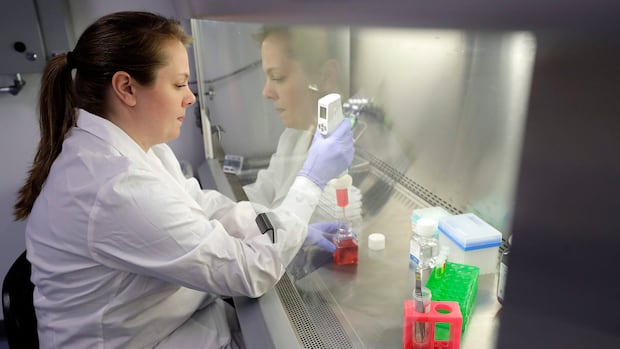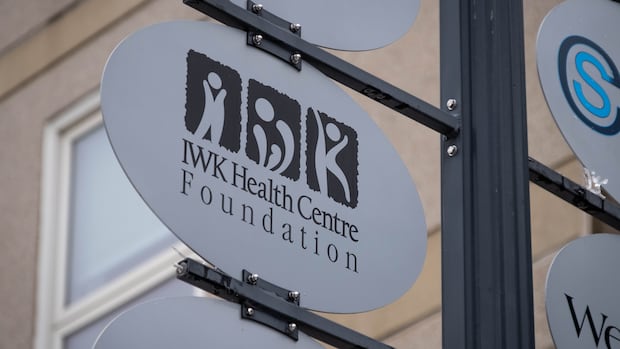Alberta Health Services says 18 people have tested positive for presumptive E. coli — three of whom also tested positive for a parasite that causes amoebiasis — in an outbreak at Saskatoon Farm.
So far, 235 people have reported symptoms linked to the outbreak, officials said. Two people have been hospitalized, one of whom has been discharged.
Alberta Health Services (AHS) previously said people were reporting gastrointestinal illness after dining at Saskatoon Farm, near Okotoks, on July 15 and 16. Now, officials are saying they’re still working to identify when exactly people were exposed, but it was likely early that week.
Officials at AHS are asking people who ate or drank at the farm between July 1 and 16 and have symptoms such as nausea, vomiting, abdominal pain and diarrhea to call HealthLink or see their primary care provider.
Anyone who has severe symptoms, such as bloody diarrhea, should go to urgent care or an emergency department.
AHS also recommended that asymptomatic individuals who dined at the farm during that time, should get in touch with the health authority after July 30 for testing. Officials say more information should be available next week.
Dr. Francesco Rizzuti, medical officer of health with AHS, said the facility’s water supply is likely the source.
Farm management previously told CBC News that after last week’s heavy rain, they believe groundwater got into the cisterns from which they truck in their restaurant water.
“The Saskatoon Farm has since disabled that water system and have switched to a different water source. This water source has been tested multiple times since the switch by AHS. We’ve received these water results. They are satisfactory,” said Rizzuti during a press conference on Friday afternoon.
Rizzuti explained that the strain of E. coli that people are testing positive for — Enteroinvasive Escherichia coli — is different from other types of E. coli sometimes seen in other outbreaks.
He said there have been no diagnoses of amoebiasis from this outbreak, but the parasite that causes it — Entamoeba histolytica — has been detected in three stool tests.
All food services at the Okotoks farm have been shuttered by AHS since July 23. They will “remain closed until the conditions of the order are met and until public health inspectors and medical officers of health have deemed it safe to reopen,” said AHS.
AHS said the rest of the venue remains open and safe for business.
‘I haven’t ever experienced anything like this’
More than a week after dining at the sit-down restaurant at Saskatoon Farm, best friends Kayla Scott and Alanna Jensen are still battling a stubborn illness.
“I haven’t ever experienced anything like this,” said Scott, a Calgary resident.
Scott and Jensen — as well as their friend and all their young babies — visited last Wednesday. Their symptoms hit the next day: intense vomiting, diarrhea, stomach pain, fevers, chills and more.
“My already-low milk supply for my daughter has gotten even lower because I can’t eat, I can barely drink. That’s been a huge cause of stress for us. This whole thing has just been a nightmare.”
Jensen said she knew all along that it was an issue with the water. She said she even asked for lemon slices to add to her water to help with the taste.
“There were three of us that went to the farm. Two of us ended up sick, and the two of us that were sick were the ones that drank the water,” said Jensen, who lives in Okotoks.
She wrote the farm an email on Friday morning, two days after their visit, to let them know about their symptoms.

“I’m probably just never gonna drink water at a place of business ever again,” said Scott.
Watch for dehydration, bloody diarrhea
Dr. Catherine Patocka, an emergency department physician and emergency medicine department head at the University of Calgary, said in situations like this, she worries most about vulnerable populations.
“Younger children or much older individuals who are not able to eat or drink anything could certainly be at risk for dehydration.”
“And then also certainly if you’re having diarrhea that has blood in it, that’s always more concerning to us and should be brought to attention sooner.”
Microbiologist Jason Tetro said this is an example of why water testing is so important — especially in rural, agricultural settings.
“It’s very rare that we see this, but if you suspect that a lot of rain has occurred and you know that you’re going into an environment that may be using water that isn’t pressurized and treated like we do in the city, it’s OK to ask for bottles.”







